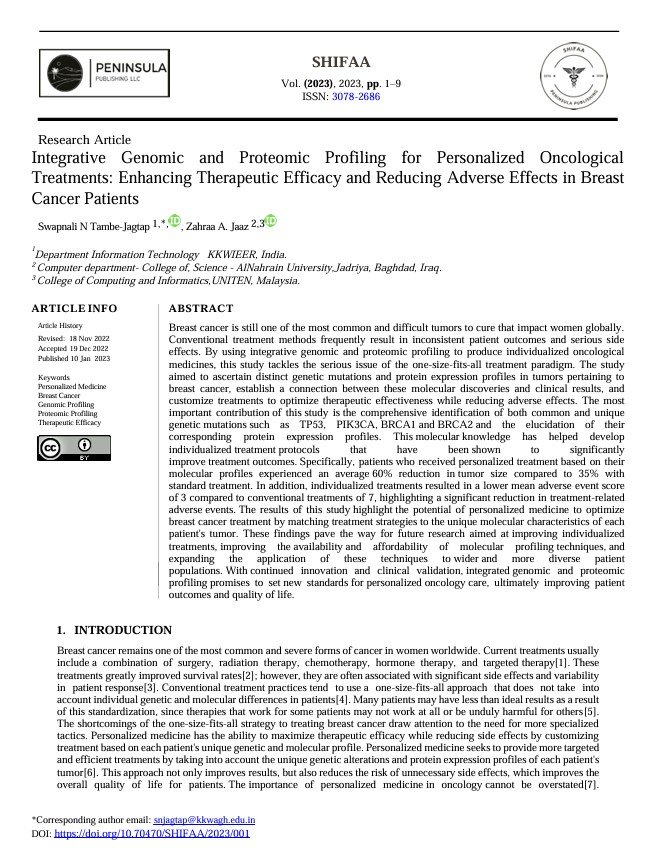Integrative Genomic and Proteomic Profiling for Personalized Oncological Treatments: Enhancing Therapeutic Efficacy and Reducing Adverse Effects in Breast Cancer Patients
Main Article Content
Abstract
Breast cancer is still one of the most common and difficult tumors to cure that impact women globally. Conventional treatment methods frequently result in inconsistent patient outcomes and serious side effects. By using integrative genomic and proteomic profiling to produce individualized oncological medicines, this study tackles the serious issue of the one-size-fits-all treatment paradigm. The study aimed to ascertain distinct genetic mutations and protein expression profiles in tumors pertaining to breast cancer, establish a connection between these molecular discoveries and clinical results, and customize treatments to optimize therapeutic effectiveness while reducing adverse effects. The most important contribution of this study is the comprehensive identification of both common and unique genetic mutations such as TP53, PIK3CA, BRCA1 and BRCA2 and the elucidation of their corresponding protein expression profiles. This molecular knowledge has helped develop individualized treatment protocols that have been shown to significantly improve treatment outcomes. Specifically, patients who received personalized treatment based on their molecular profiles experienced an average 60% reduction in tumor size compared to 35% with standard treatment. In addition, individualized treatments resulted in a lower mean adverse event score of 3 compared to conventional treatments of 7, highlighting a significant reduction in treatment-related adverse events. The results of this study highlight the potential of personalized medicine to optimize breast cancer treatment by matching treatment strategies to the unique molecular characteristics of each patient's tumor. These findings pave the way for future research aimed at improving individualized treatments, improving the availability and affordability of molecular profiling techniques, and expanding the application of these techniques to wider and more diverse patient populations. With continued innovation and clinical validation, integrated genomic and proteomic profiling promises to set new standards for personalized oncology care, ultimately improving patient outcomes and quality of life.
Article Details

This work is licensed under a Creative Commons Attribution 4.0 International License.
